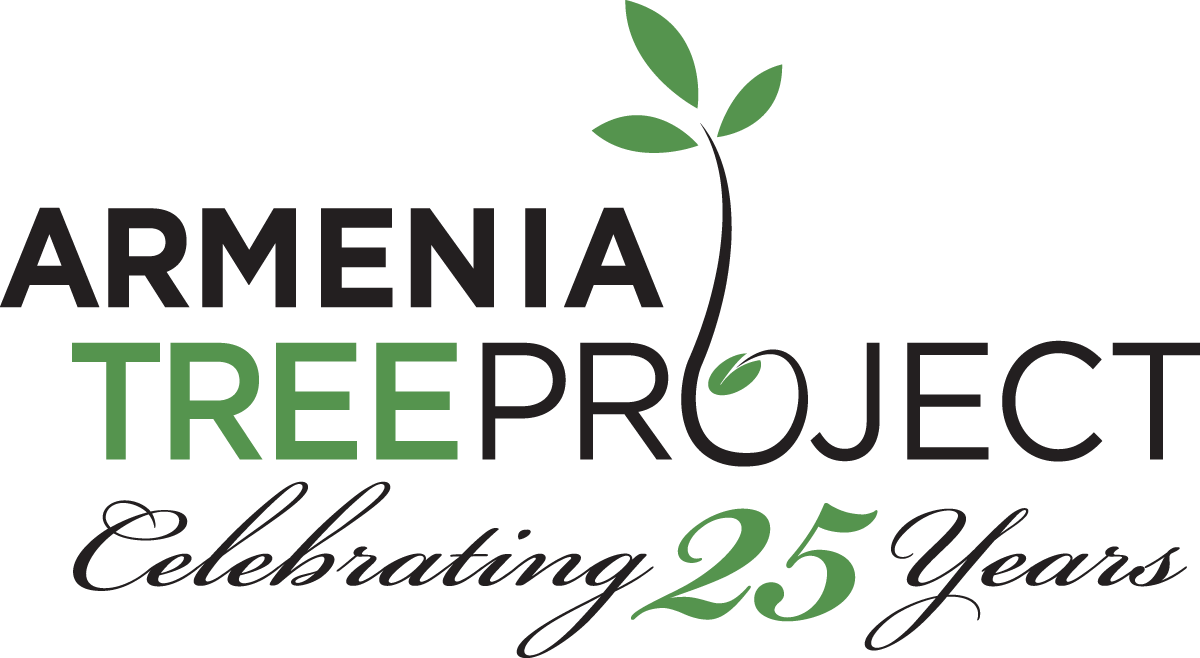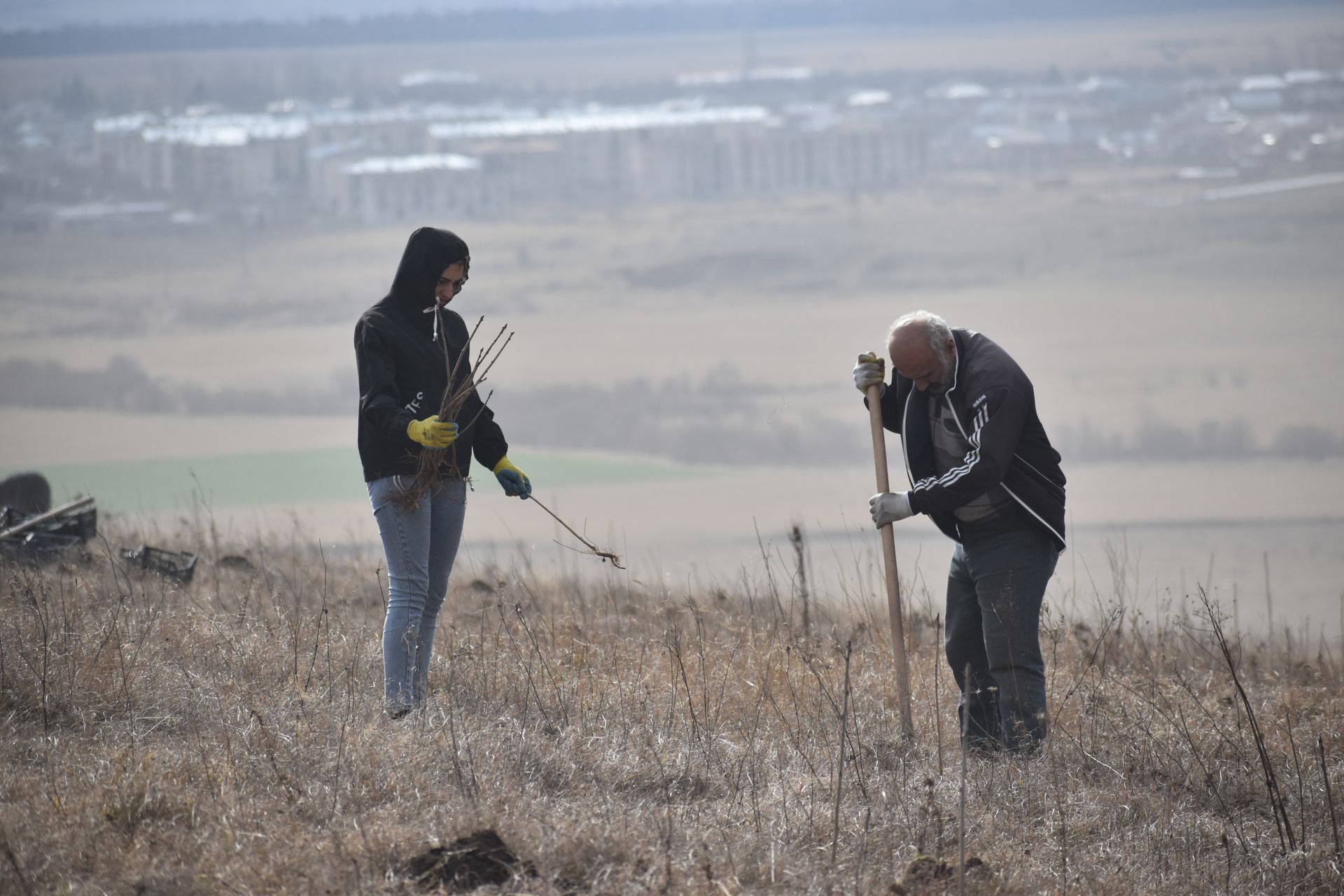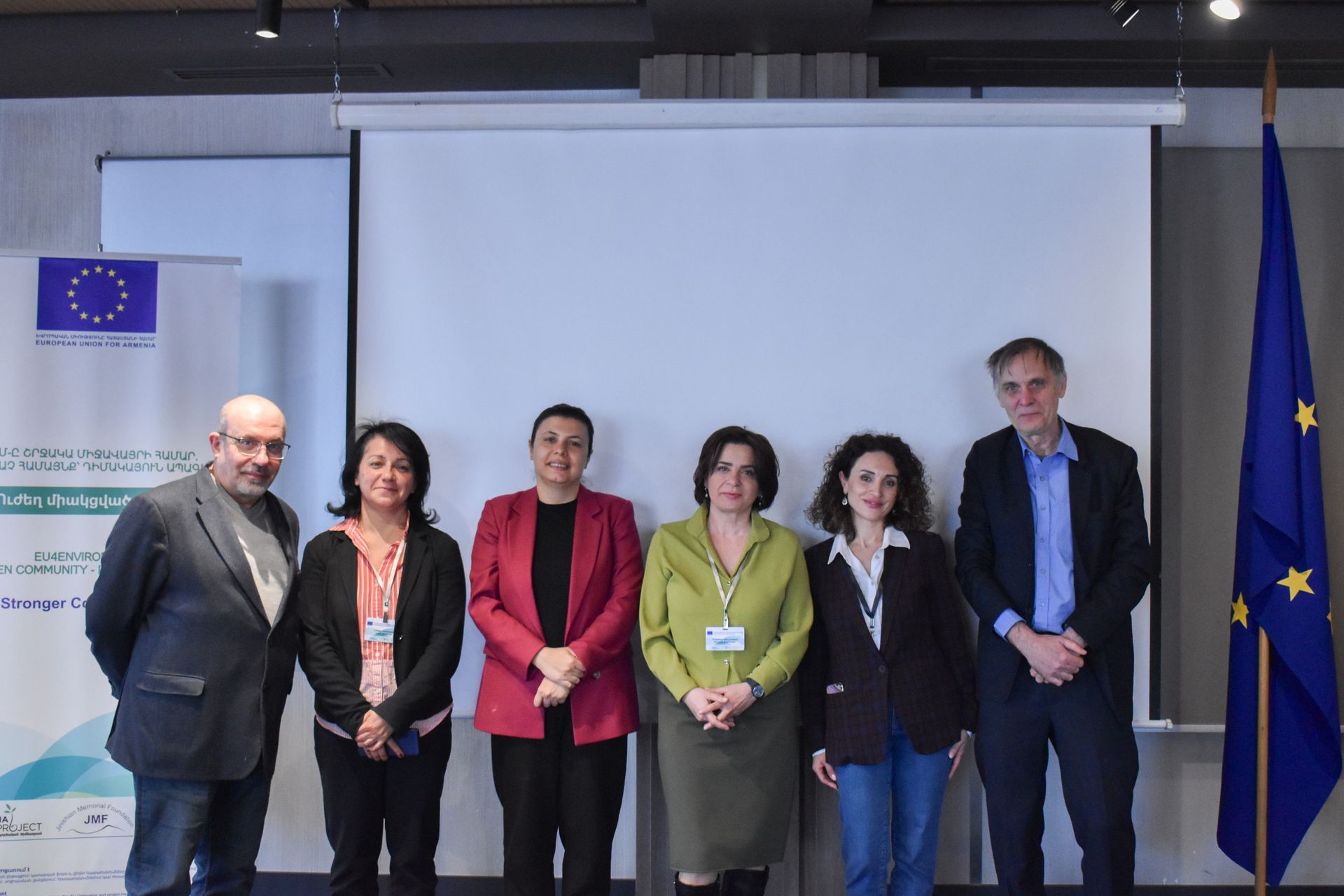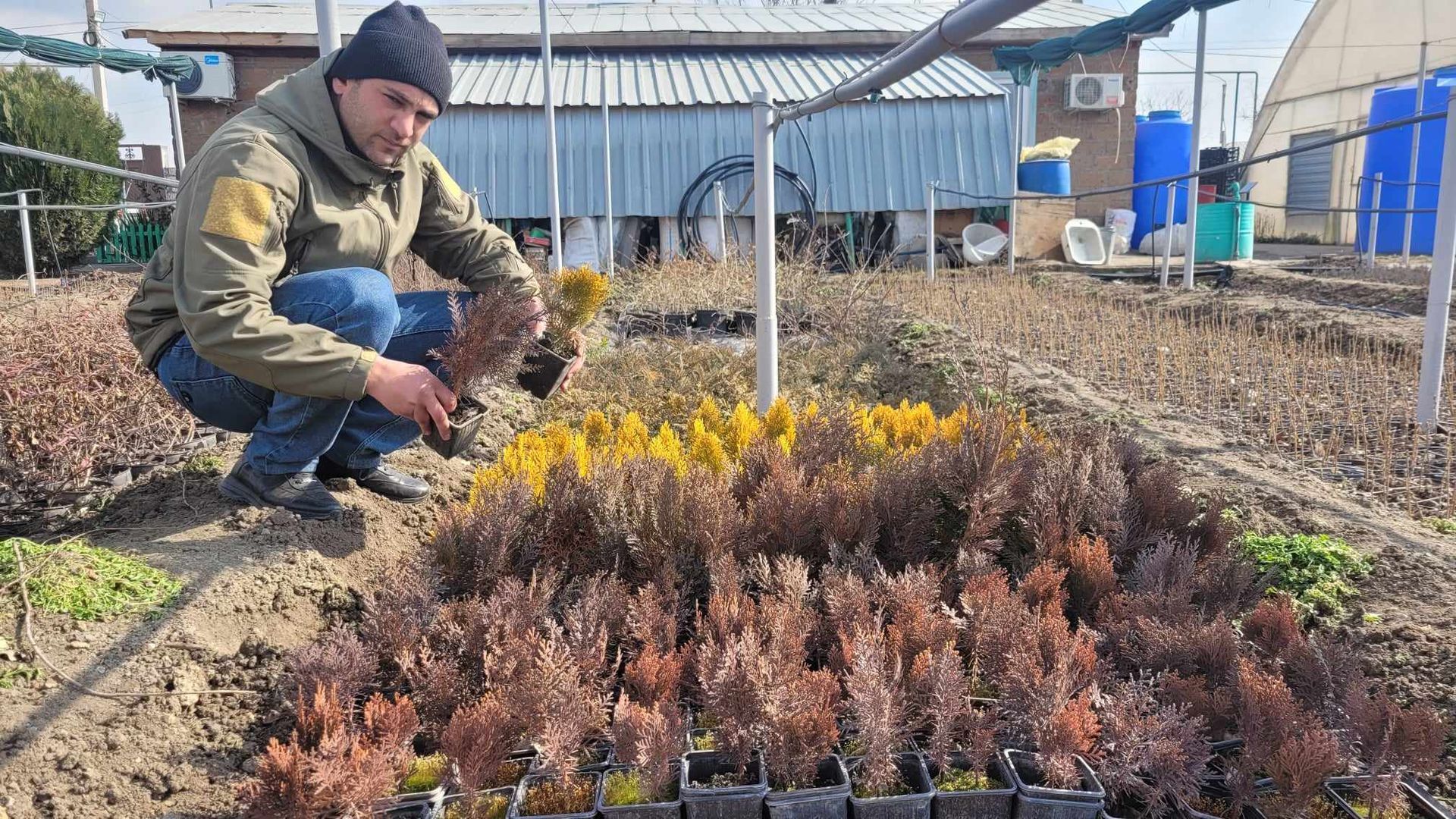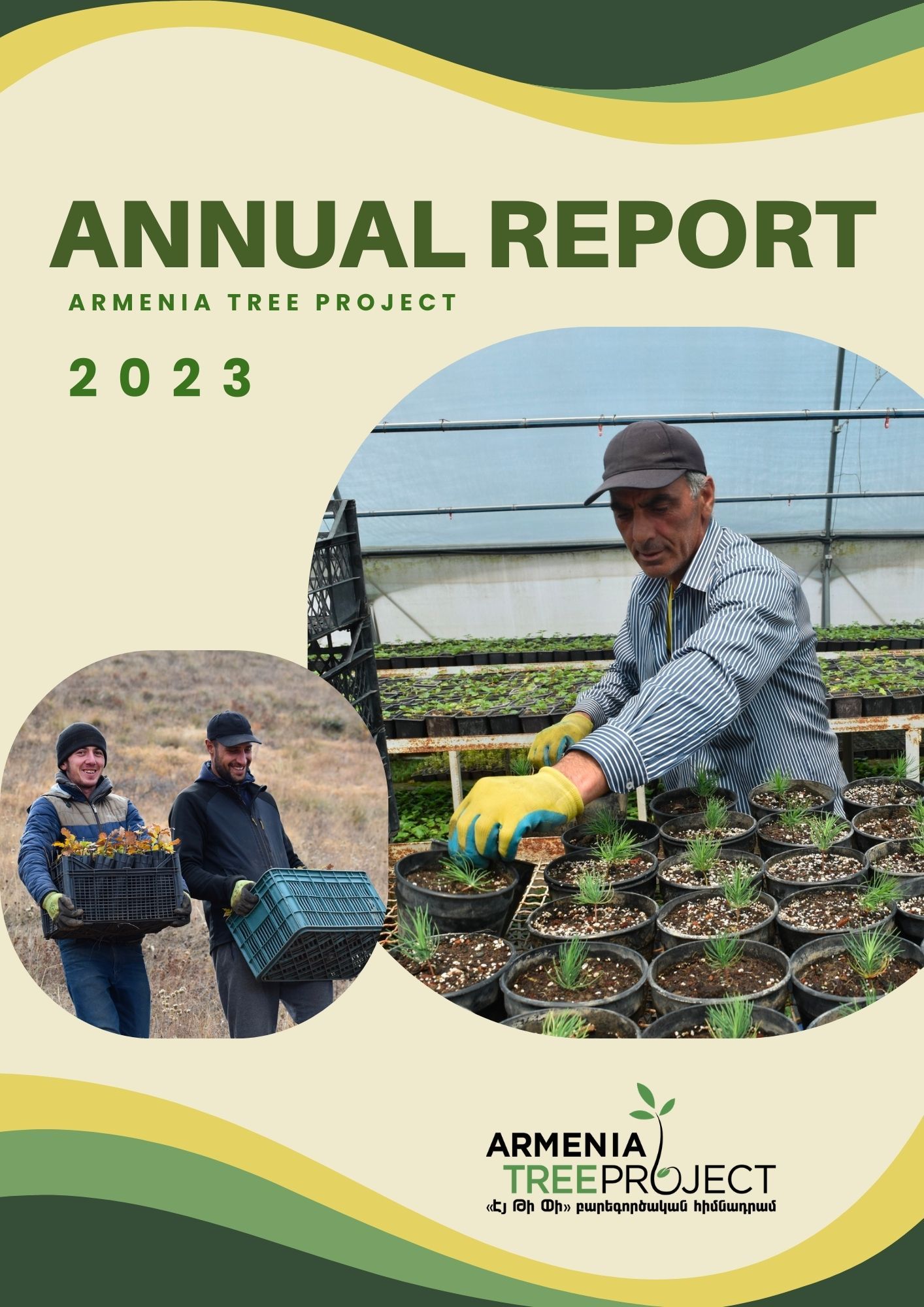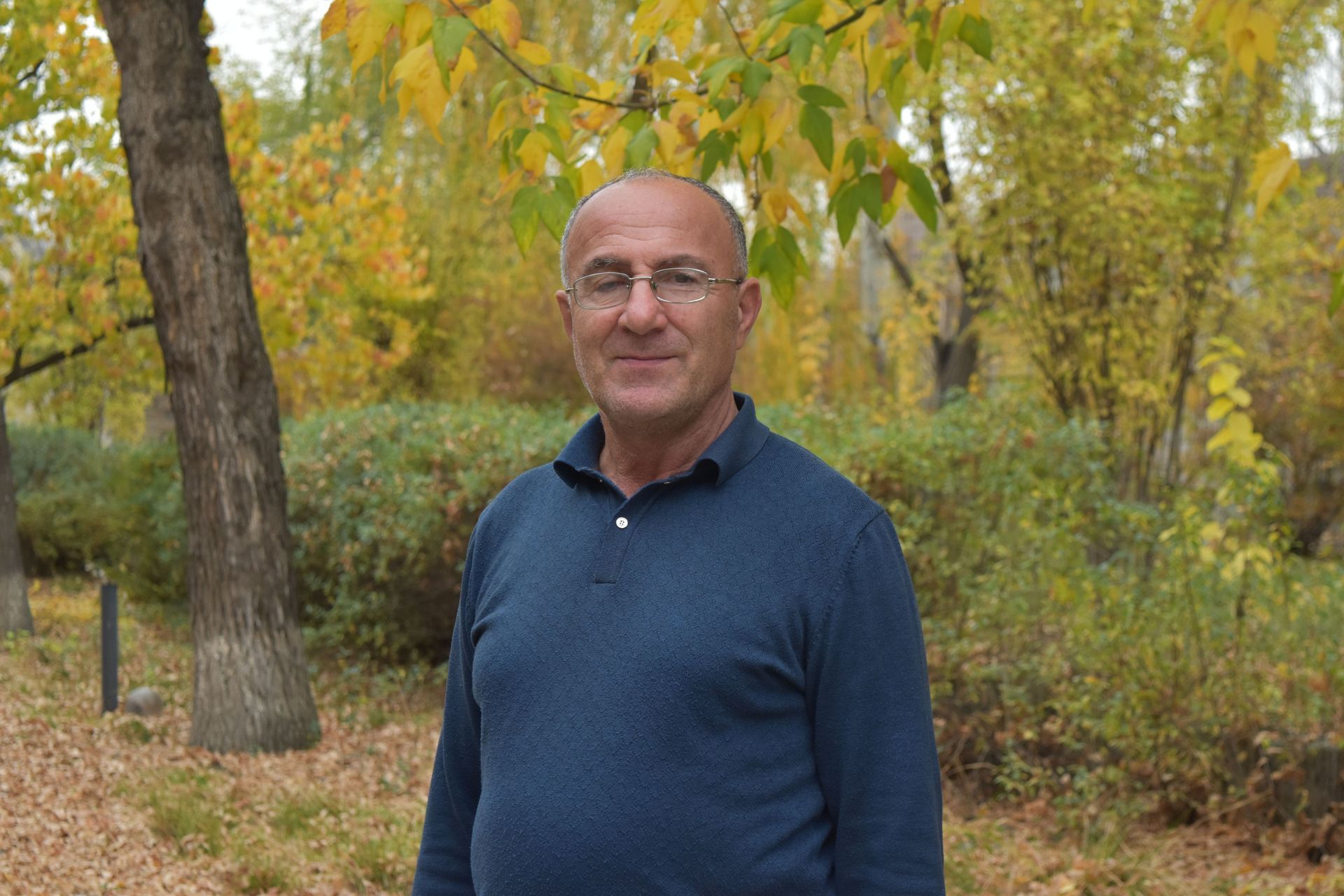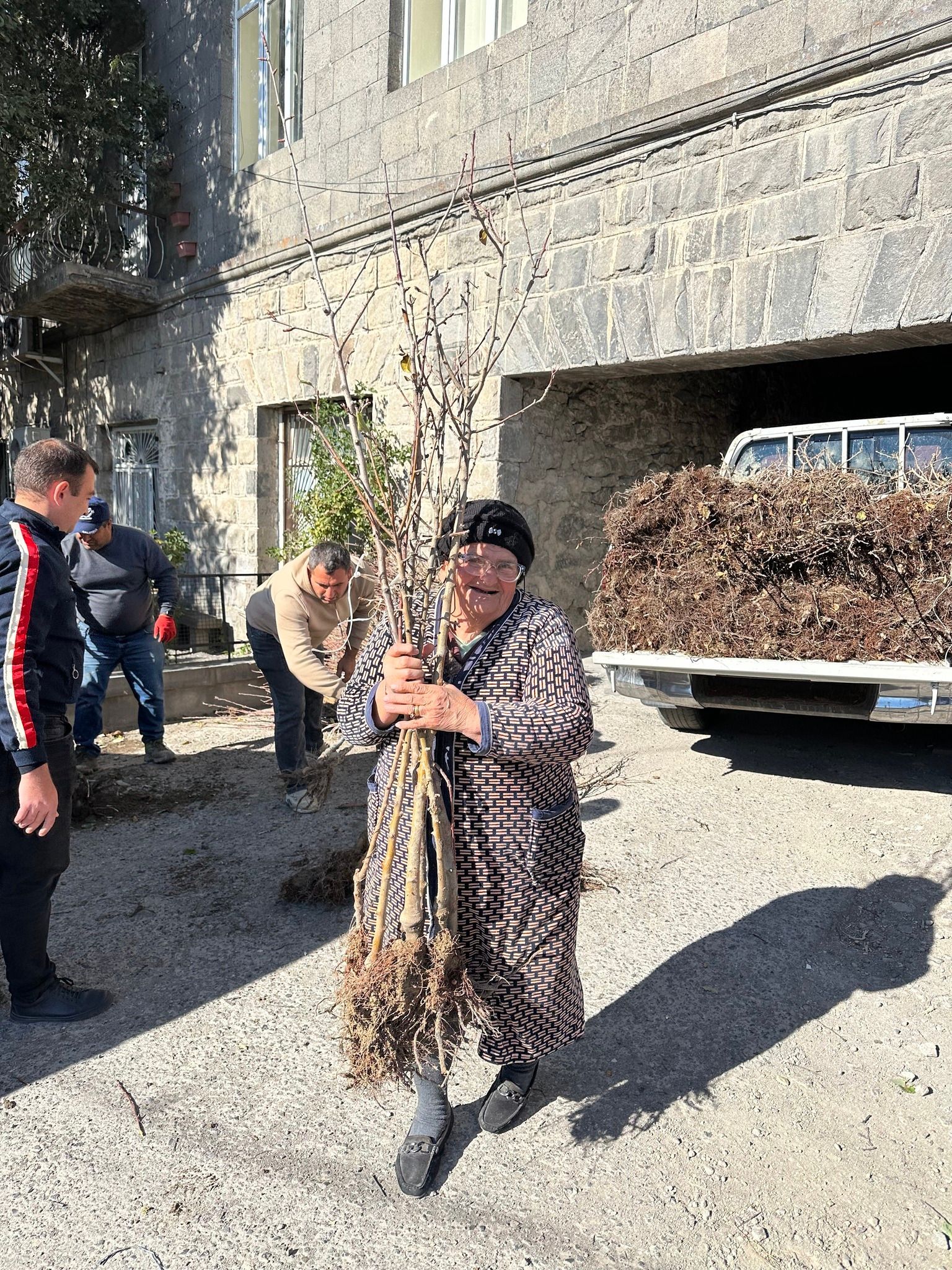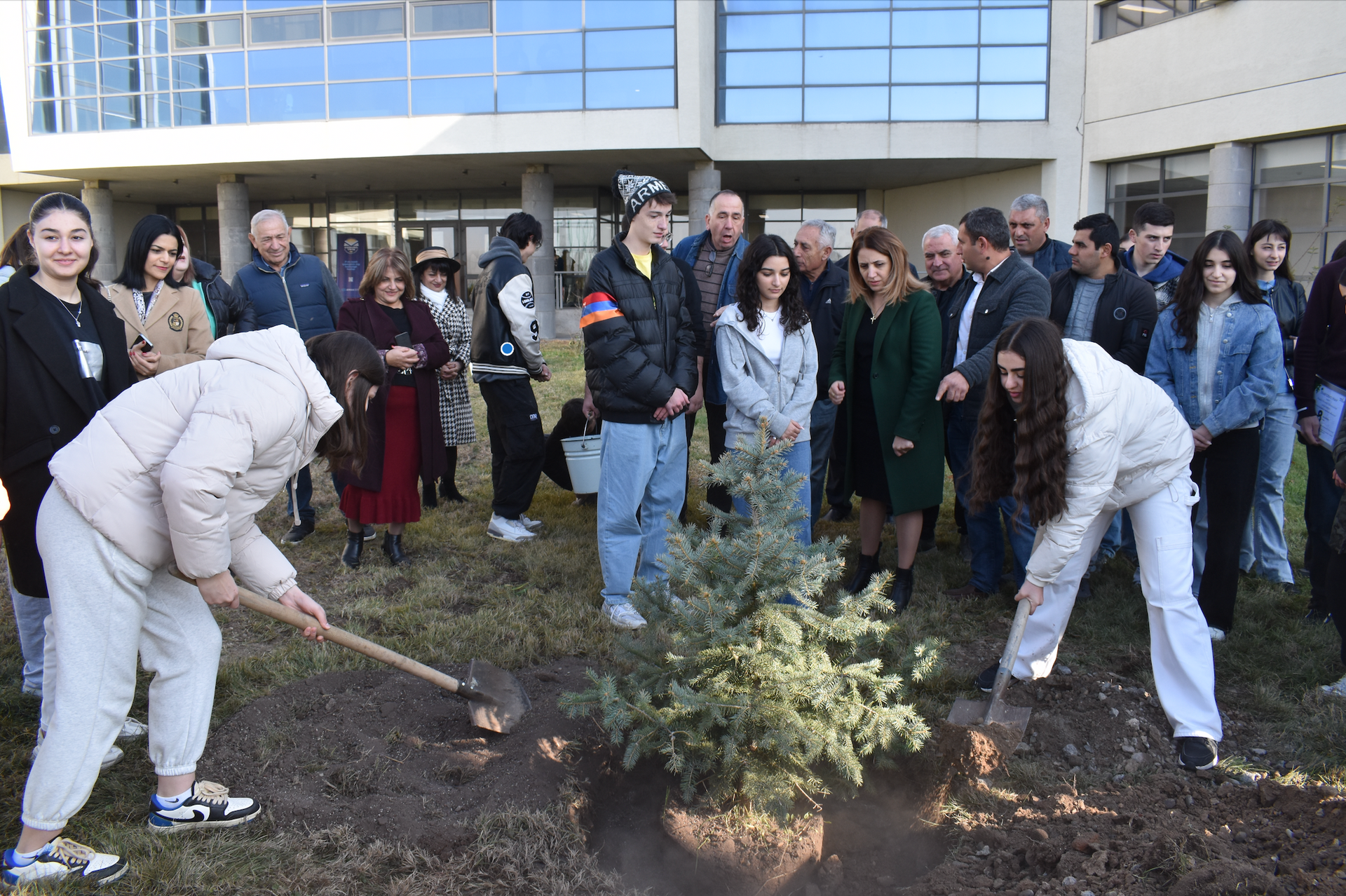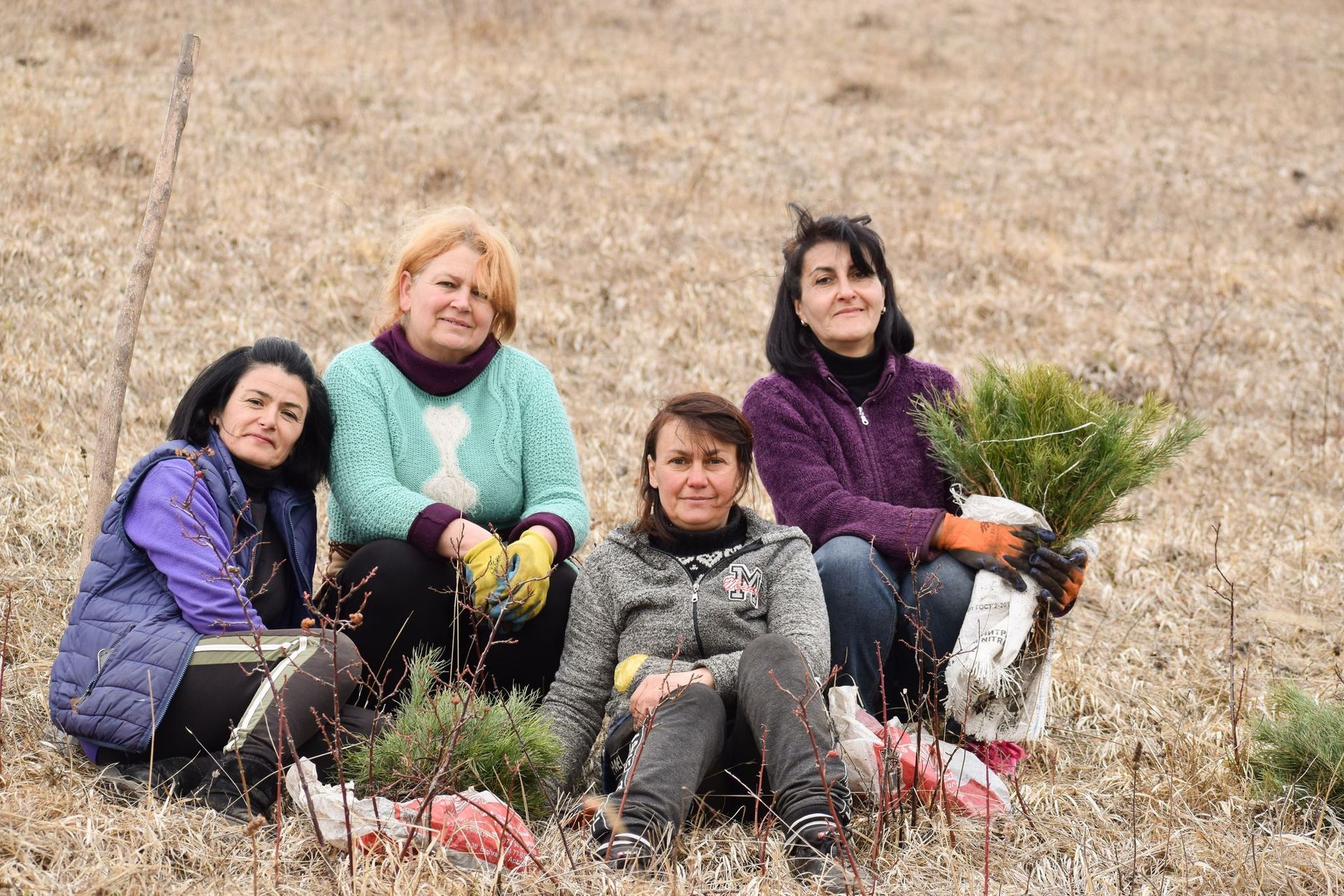News About ATP
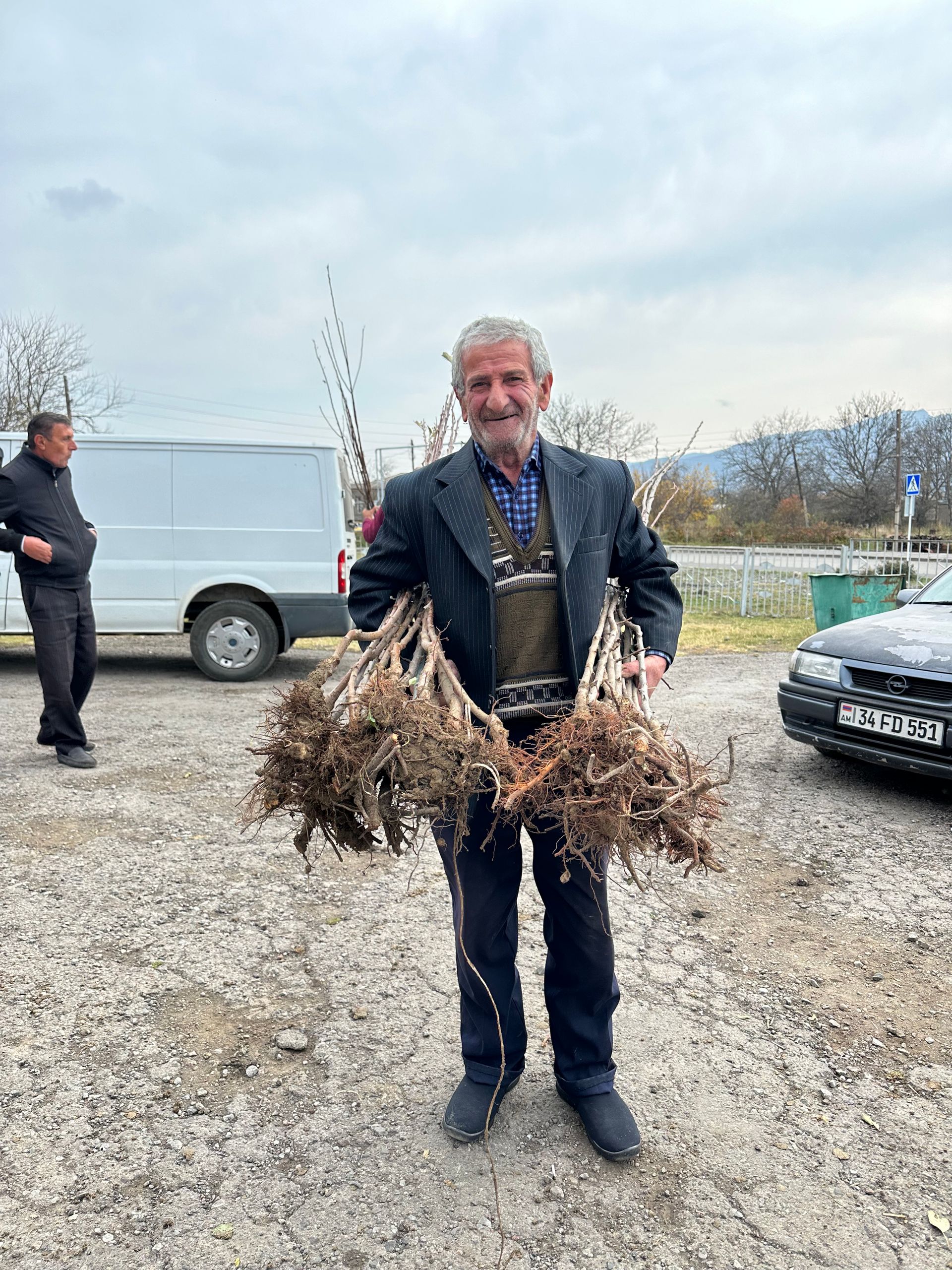
By satenik
•
22 Dec, 2023
Growing Hope: Transforming Lives in Armenia’s Border Villages with Fruit Trees This fall, Armenia Tree Project (ATP) orchestrated a remarkable initiative that not only distributed 10,982 fruit trees to over 1,200 families, but also sowed the seeds of hope in border villages of Gegharkunik and Syunik regions. This heartwarming endeavor, which spanned communities like Sotk, Areguni, Pambak, Daranak, Akner, Khot, Karahunj, Hartashen, and Shurnukh, has unfolded into a tale of resilience and rejuvenation for the residents of these villages. Residents, whose lives hae been marred by the echoes of Azeri UAV attacks and the devastating bombings that rocked Sotk in September 2022, were overjoyed to receive these life-changing gifts. The distribution of apricot, black currant, apple, pear, plum, peach, and cherry trees brought not just big smiles, but tangible hope to these brave individuals, leaving them with bushels of saplings that signify a promising future. Sotk, a village that has borne the brunt of conflict, is emblematic of the challenges faced by these border communities. In the aftermath of the repeated bombings, were 150 of the 250 houses were severely damaged, ATP stepped in with a vision for growth and restoration. Sevak Khachatryan, the Administrative Head of Sotk, expressed profound impact of ATP’s intervention, stating, “Artsakh played a vital role in Gegharkunik’s cultural identity and economy, including imports and exports of agricultural goods. Before the ethnic cleansing of Artsakh, our village and the region of Gegharkunik had developed lively trade with Artsakh, exporting wheat, potato, and barley and importing fruits and nuts. Since we don’t have this opportunity anymore, we are trying to grow some of the formerly imported foods.” ATP’s distribution of seven trees each, including apple, pear, and black currant, to over 150 families in Sotk is not just a gesture of generosity but a lifeline for a community heavily dependent on agriculture for sustenance and economic stability. These trees, carefully chosen for the climactic zone of Gegharkunik, represent a beacon of hope, promising nourishment and economic opportunities within just a couple of years. With proper care, the trees will start to bear fruit in as little as two years. The villagers are eagerly anticipating establishing new orchards with the trees. Once they mature, the trees can also act as donor or parent trees to graft additional fruit trees. This way, villagers will be able to propagate more trees for their orchards and backyards in the years to come. As climate change brings warmer temperatures to the region, however, ATP and the villagers work together to adapt. Sevak remarked, “The only positive thing that we can harvest from this global warming is to grow varieties of fruit trees that before would be impossible in Gegharkunik. So, as our collaboration with Armenia Tree Project continues, we would like to try growing apricots, peaches, plums and cherries as well.” Since its inception in 1994, ATP has been instrumental in providing fruit and nut tree saplings to rural villagers, offering sustenance, additional income, and a green revolution that encourages biodiversity. In 2006, the fruit tree distribution program began focusing on border villages, as these communities are the most vulnerable to environmental, economic, and social distress. The program is beloved by ATP staff and beneficiaries alike. The trees for the program come from our “Betty” fruit tree nursery in the Chiva village, located in the Vayotz Dzor region. The nursery has been a cornerstone of this effort, producing roughly 50,000 trees annually, the majority of which are fruit trees that are distributed to villages and used for community planting sites. As ATP looks ahead, the organization aims to enhance its impact by providing a greater quantity and diversity of trees to rural and border villages in the coming years. This program captures resilience, growth, and hope, which stand as testaments to the transformative power of community-led initiatives. - # # # - Armenia Tree Project, established in 1994, is a non-profit organization that revitalizes Armenia’s most vulnerable communities through tree-planting initiatives, and provides socio-economic support and growth. It is based in Yerevan, Armenia and has an office in Woburn, Massachusetts. For more information, please visit ArmeniaTree.org or email info@armeniatree.org .
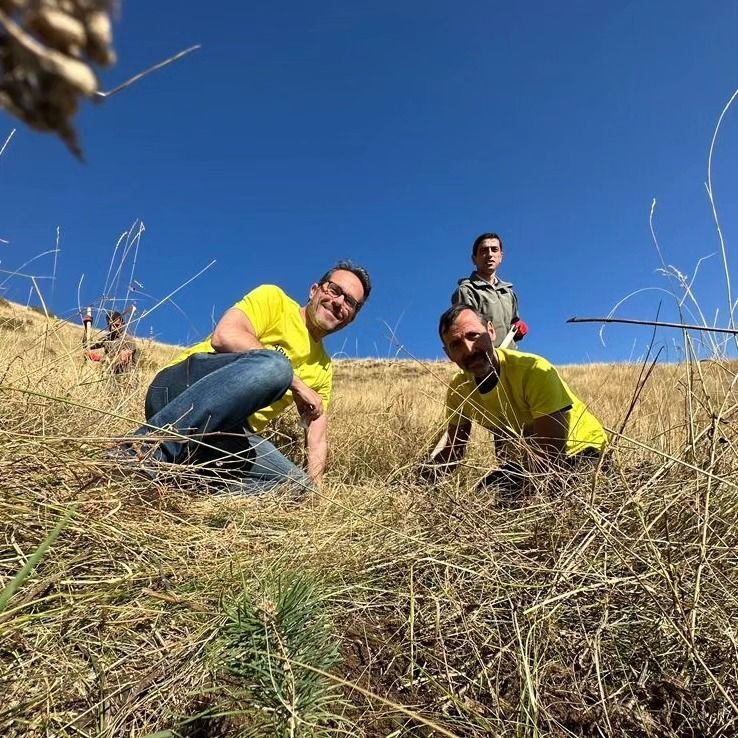
24 Oct, 2023
At the start of this year’s fall planting season, we had the honor of bringing Krikor Didonian and Vazken Davidian to ATP's forestry sites in Mets Sariar Village, Shirak Region, where together we planted symbolic birch and pine trees in memory of their late uncle and longstanding ATP donor, Krikor Didonian. The Mets Sariar Community Forest Site is located in the highlands of Shirak Region. Most of the 106 hectares of community-owned lands allocated to Armenia Tree Project for afforestation are degraded lands lacking vegetation and especially trees. Accordingly, forest planting this environmentally degraded area is critical for providing windbreaks, preventing soil erosion and further degradation, and for regional water storage. The recent ceremonial planting by Mr Didonian’s nephews marks the beginning of what will be The Krikor Didonian Memorial Forest. Covering 42 hectares, this forest will include thousands of pine, birch, oak, maple, ash, wild apple and pear trees. Krikor Didonian was the son of genocide survivors. Born in Nicosia, Cyprus, he had a deep connection to his Armenian roots and culture --a trait he shared with his family. Didonian’s commitment to trees is deeply rooted in his personal history and can be traced to the genocide memorial forest at the Melkonian Educational Institute (MEI) in Nicosia, which was planted by the orphaned students of the school in the early 1920s. Didonian was a full scholarship recipient of MEI and his life and world views were shaped by his attendance at the school. Fluent in several languages, he was passionate about all things Armenian, while maintaining his identity as a citizen of the world. All through his life, his lens remained wide and he kept an open mind and an openness to different ideas and cultures. Generous to his core, he knew he would not be able to enjoy the shade of the trees he planted, yet he planted those seedlings anyway so that the grown trees could provide shade and bounty for others. His charitable spirit extended a special love for Armenian literature. At our site, we established a memorial plaque with one of his favorite poets, Vahan Tekeyan's poem called Reckoning. Tekeyan’s 1926 poem Հաշուեյարդար, sums up his life perfectly: Հաշուեհարդար, ի՞նչ մնաց, կեանքէն ինծի ի՞նչ մնաց, ինչ որ տուի ուրիշին, տարօրինակ, այն միայն: [Reckoning at the end of one’s life – ‘What has remained? What has remained to me from life? Strange, only that which I have given others, solely that.’] A huge thank you to Krikor Didonian, the Didonian and Davidian cousins and their lovely family for their generosity to ATP and their faith in our work.


